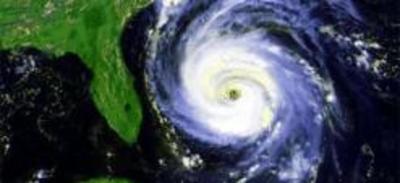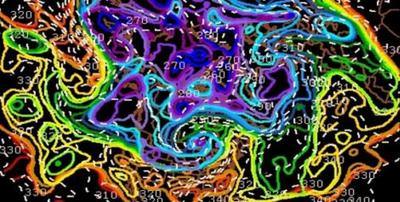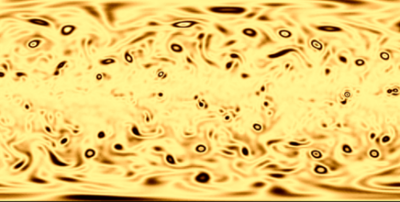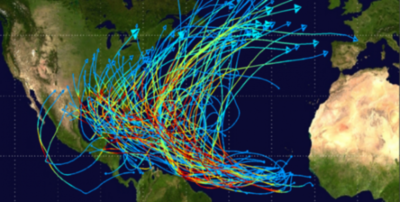Tropical Meteorology
PAOC houses an active program of research in tropical meteorology. Among many phenomena studied are tropical cyclones, monsoon events, cumulus convection, interaction between moist convection and larger scale circulations and distribution of stratiform clouds.

Tropical cyclone research aims to achieve a basic understanding of their dynamics and energetics as well as of improving forecasts and long-term risk assessments. Professor Emanuel heads a team of researchers that includes graduate and undergraduate students, postdoctoral fellows, and interns. Together they seek to address such issues as the physical control of tropical cyclone intensity, including effects owing to interaction with the ocean, air-sea enthalpy exchange at high wind speeds, and interaction of the storms with environmental winds; factors influencing the structure and overall size of tropical cyclones; tropical cyclogenesis; response of tropical cyclones to climate change, and the possible role of tropical cyclones in regulating climate. Students are encouraged to use all available tools in pursuit of their research, including advanced theoretical approaches, modeling, and laboratory experiments; they also participate in field programs.
Another phenomenon of interest is the monsoon. Recent research in PAOC has demonstrated that monsoons may exhibit nonlinear threshold behavior owing to the reconnection of angular momentum surfaces across the equator, and that the abrupt beginning and cessation of the Asian monsoon, as well as the break periods within it, may arise from feedbacks between surface winds and surface fluxes in the Bay of Bengal and Arabian Sea.
Understanding cumulus convection continues to present an enormous intellectual challenge with many practical consequences, since convection is the main process for distributing heat and moisture upward from the sea surface in the Tropics. PAOC students, postdoctoral fellows, and faculty are engaged in research aimed at improving the basic understanding of moist convection as well as the role of convection in climate. We have discovered, for example, that updraft velocity in moist convection in equilibrium with radiation scales with the fall speed of precipitation, and unexpected finding that has implications for the control of atmospheric water content by convection. We have developed representations of cumulus convection and fractional clouds that are used in a variety of climate and weather forecast models.
The interaction between moist convection and larger scale circulations continues to present some fascinating challenges, such as understanding the Madden-Julian oscillation and other modes of tropical variability that occur on intraseasonal time scales. PAOC is actively engaged in research that aims to understand the intricate interplay of convection, clouds, radiation, surface fluxes, and large-scale circulations that is fundamental to understanding the modes of variability of the tropical atmosphere.
Moist convection exerts a strong control on the distribution of atmospheric water vapor, and thereby on the distribution of stratiform clouds. Research in PAOC has demonstrated that equilibrium atmospheric humidity is sensitive to assumptions about entrainment and microphysics in clouds, so that climate sensitivity, which depends critically on water vapor and cloud feedbacks, is in turn sensitive to the formulation of cumulus convection and the microphysical processes associated with it. PAOC’s strengths in large-scale climate dynamics and modeling and in small-scale turbulence and convection position it to make unique contributions to predicting and understanding climate.


